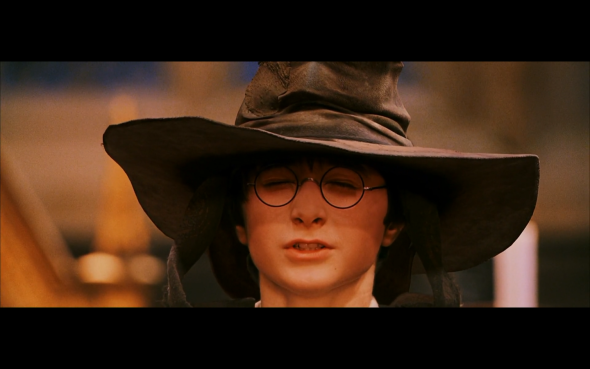College, as according to the ever-so-reliable Wikipedia is defined as an “educational institution or a constituent part of one.” But honestly, just between you and me, it seems like that definition should include something with students having to be a part of a circus by all the amount of work, assignments, club meetings, classes, and miscellaneous activities that we juggle.
It’s almost as if we all wear so many different hats with all the different activities we are involved in. Now I’m not talking about the Harry Potter Sorting Hat, but you all should take this quiz and see which house you’re sorted in but I digress.

Harry sure has a lot on his plate too, such as defeating “He-Who-Must-Not-Be-Named.” Photo via Huffington Post
It can get pretty easy to loose your authenticity and become desensitized to all the things you have to do on that ever growing to-do list (we all have those weeks!) The art of balancing activities and ways of interacting with professors, co-workers, friends, and our families, can often get mechanical as if we are flipping a switch and all of a sudden have to put on a different mask. I suppose its just a consequence of all of the different thoughts racing through our mind at such a fast speed.
Now apply this to a work or internship setting: You arrive as one part of yourself and then the moment you walk in, you switch to your professional/work/I’m a serious professional that can handle adult life persona (and there’s absolutely nothing wrong with that — if anything, it shows a high emotional intelligence and capability to compartmentalize your behavior and actions). However the point that I’m trying to make is that while in certain situations, we may have to be a little more relaxed or a little more professional, there is always enough room for your actual self (that isn’t trying to be anything other than you).
Now I’m not saying that you should all of a sudden talk to your boss in the same way you joke around with your friends or tell your professors about that huge party that happened last weekend (although that’s awesome if you are that close with your boss and professors and tell them all about your life), but what I am saying is that it is OKAY to be the most real, raw, authentic version of yourself as much as you can even in professional or work related settings. And when we get down to the point, maintaining your authentic individual voice can be really difficult. After all, the great e.e. cummings once said,
“To be nobody but yourself in a world which is doing its best, night and day, to make you everybody else means to fight the hardest battle which any human being can fight; and never stop fighting.”
From my professional experiences I’ve learned that co-workers, colleagues, superiors, and your boss often like when they can get to know you as a person and relate to you on a personal level. It makes your work relationship even more valuable and that much more fulfilling. So next time you start volunteering in your local community, register for a new class, or start your first day at your internship don’t be afraid to show these people who you really are. Your funny quirks, idiosyncrasies, humor, and overall personality all in good fun. (And pro-tip: you might even get a better letter of recommendation for it, because your boss actually knows you as a person and can validate your awesome existence and humanity).
So don’t be a work robot folks, show your potential boss who you really are!
Have fun being you!!!
Isabella 🙂

